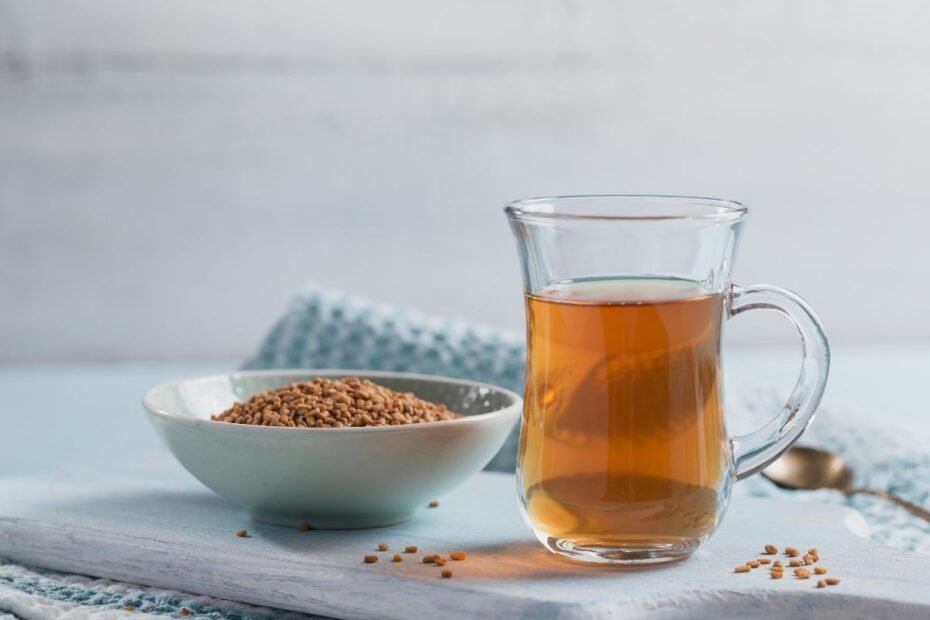Fenugreek has long been reputed for its healing and culinary properties. People use this plant’s leaves and seeds for medicinal and nutritional purposes. Fenugreek seeds are trendy in Asian, Mediterranean, and Middle Eastern cuisines. However, in recent years, fenugreek tea has gained popularity worldwide for its health benefits. Read this article about what makes fenugreek tea benefits unique and how to prepare it.
Fenugreek Tea: History and Traditions
Fenugreek (Trigonella foenum-graecum) is a plant of the Fabaceae family that looks a bit like clover. The fruit is the most distinctive feature of fenugreek. Beans are slightly angular, small, yellowish-brown. The plant ripens about 10-20 seeds in a pod.
Ayurvedic medicine and ancient Egyptian civilizations traditionally used fenugreek as a healing herb. Egyptians also used fenugreek as a remedy for digestive problems, infections, and general health.
Fenugreek seeds act as an ingredient in curry spices, medicinal preparations, and health-enhancing tea in India. People there use it to stimulate digestion and relieve menstrual pains.
Ancient Greeks were probably the first people in Europe who noticed the fenugreek healing properties to treat livestock. Europeans used this plant to treat human ailments much later. Incidentally, the Latin term fenugreek itself means ‘Greek hay.’ The ancient Greeks mixed this plant with hay and fed it to sick animals, which ate fenugreek even when they refused other food.
Other countries also valued fenugreek and considered it a valuable herb:
- People in Egypt and Ethiopia used their seeds to bake bread.
- Greeks eat fenugreek beans fresh or cooked with honey.
- Americans widely used it in cooking, especially as an ingredient in sauces used to flavor sandwiches.
- Fenugreek remains perhaps the most popular in India, where people use it in vegetable and legume dishes, as a snack, and as an ingredient in curries.
- Arab women use it for body enhancement; they believe that roasted fenugreek seeds widen the hips and increase breast size.
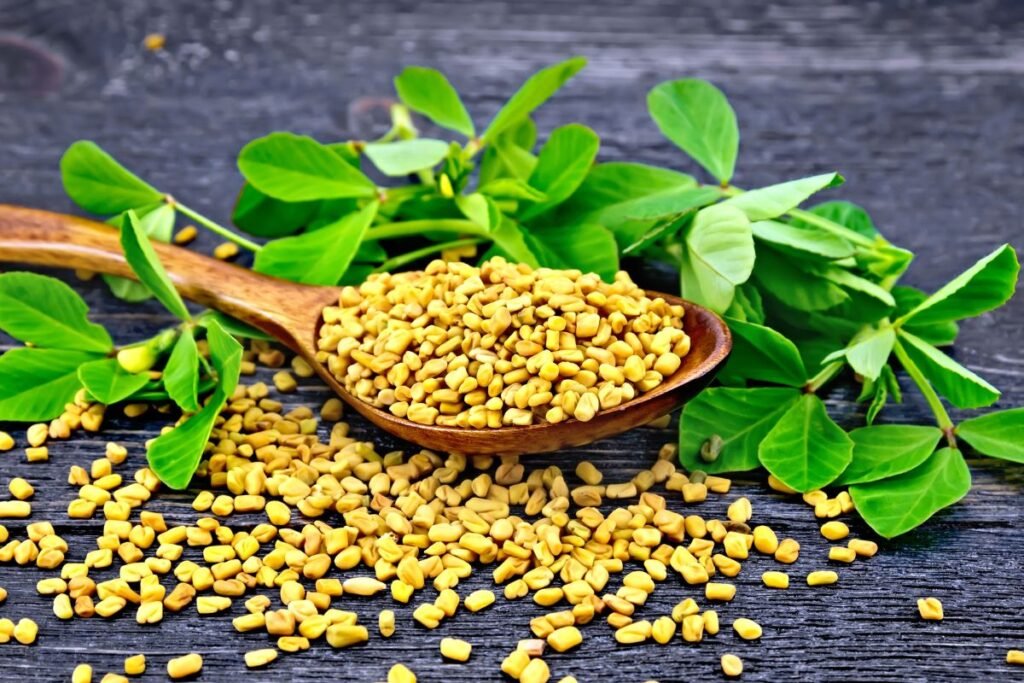
What Is Fenugreek Tea Made of?
Fenugreek tea is made from fenugreek seeds or dried leaves. It has a slightly bitter taste but a pleasant, sweet, distinctive, and unique aroma reminiscent of hay and caramel. People also compare the taste of fenugreek seeds to maple syrup.
Fenugreek tea is often prepared with other additives such as milk, honey, fennel seeds, and lemon juice. In addition, various extra additives provide further health benefits and enhance the effects of fenugreek.
What Are Fenugreek Tea Benefits?
Fenugreek has many health benefits. Experts especially recommended this tea for women, including new mothers. Fenugreek is rich in essential nutrients, which give it antioxidant properties and other health benefits. It contains vitamins A, D, and B, fiber, biotin, iron, choline, and inositol.
Fenugreek tea:
- help with digestive problems;
- stimulates breast milk production;
- relieves menstrual pain;
- relieves unpleasant symptoms caused by menopause;
- used to treat arthritis;
- helps to combat overweight;
- regulates blood pressure and cholesterol levels;
- relieves migraines and headaches;
- tones and strengthens the body and immunity;
- helps healing of wounds and ulcers;
- reduces the risk of tooth decay.
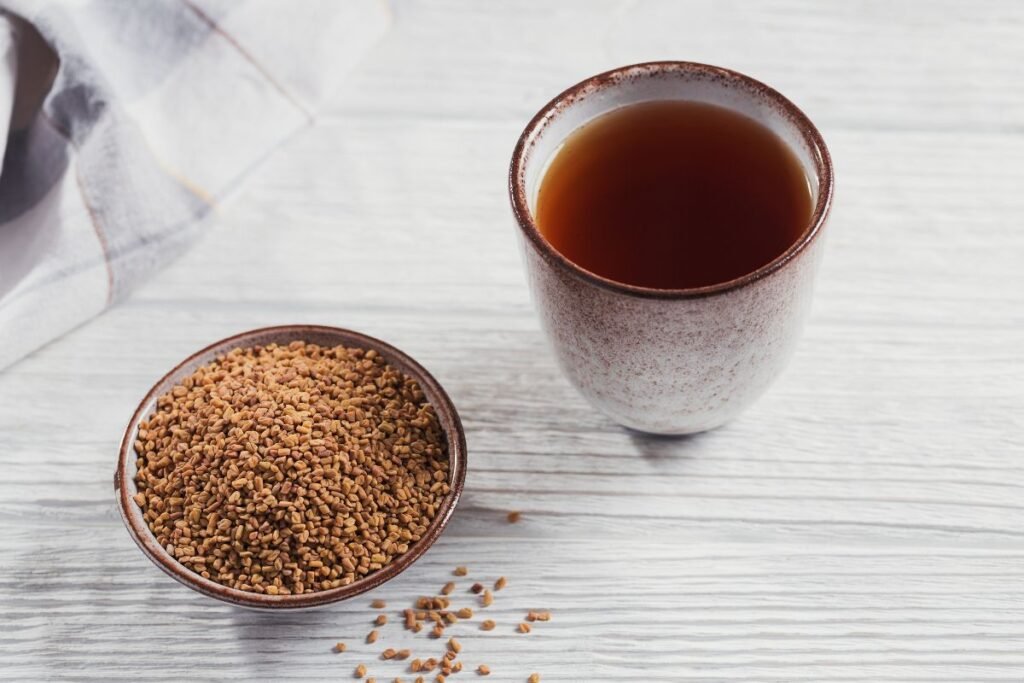
What Ailments Does Fenugreek Tea Treat?
Fenugreek leaf or seed tea has been used for many diseases and ailments since ancient times. Scientific studies have also confirmed some of the plant’s health benefits. So, the benefits of fenugreek tea for ailments are mentioned futher:
- Improving digestion. Fenugreek seeds are an excellent source of fiber, so fenugreek seed tea helps to stimulate digestion, reduce bloating, improve appetite, and help with constipation. According to Ayurvedic medical advice, you should take fenugreek tea after heavy meals to aid digestion.
- Blood glucose regulation. Research shows that fenugreek can help regulate blood sugar levels, making it particularly useful for people with diabetes and those with high blood sugar levels who are at risk of developing diabetes.
- Cholesterol reduction. Fenugreek tea can help to reduce ‘bad’ (LDL) cholesterol levels in the blood, helping to ensure fluent cardiovascular health.
- Reducing inflammation. Fenugreek has anti-inflammatory properties that can help reduce chronic inflammatory processes and thus alleviate conditions such as arthritis and asthma.
- Promoting breastfeeding. Fenugreek tea has been used for a long time to stimulate the production and flow of breast milk in nursing mothers. However, there is insufficient scientific research to support it. It is also recommended for women who have recently given birth, as it helps regain strength, toughens the back, energizes the body, and provides much-needed strength lost during childbirth.
- Stimulating libido. Fenugreek increases the levels of estrogen, which acts as the sex drive of women. It has a similar effect on men while normalizing testosterone levels and increasing libido and endurance.
- Joint health. Fenugreek tea can help with spinal or joint problems, as it is a ‘building’ material for all the joints in the body, ensuring their flexibility and strength.
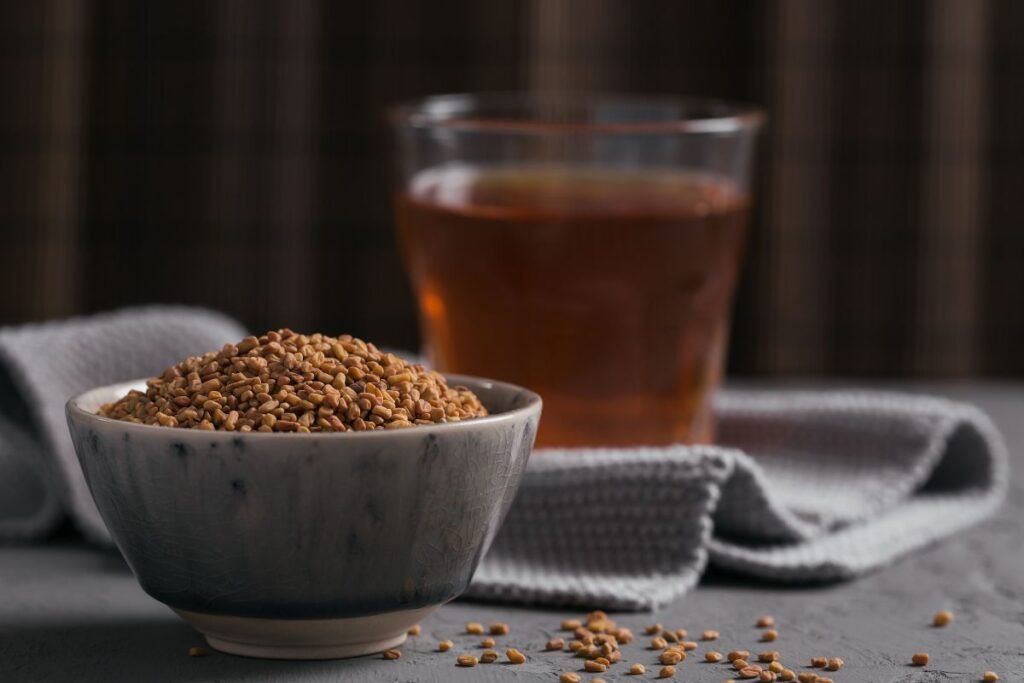
Fenugreek Seed Tea
There are many recipes for making fenugreek tea. However, they all have the same basis: fenugreek seeds/leaves and water. All other added ingredients diversify the flavor and enhance extra benefits and aroma.
Ingredients:
- 0,5 to 1 tbsp. fenugreek seeds
- 1 cup of water or milk
Preparation:
Boil the water, add the fenugreek seeds, and allow to simmer for 6-7 minutes over low heat. Cover and leave to cool slightly. Drain and taste.
Tip: It is also advisable to chew the swollen seeds after drinking the tea. This tea is particularly recommended before bedtime.
Fenugreek Seed Tea: Other Ways of Making It
In addition to the simple fenugreek seed or leaf tea, there are also many other ways of making it:
- Fenugreek and honey tea. Honey not only sweetens the tea but also gives it additional antioxidant properties.
- Ginger and fenugreek tea. Adding fresh or dried ginger gives the tea extra anti-inflammatory properties and a more intense flavor.
- Fenugreek and cinnamon tea. Cinnamon is known as a spice that can help regulate blood sugar levels, so combining it with fenugreek can be particularly beneficial for people with diabetes.
- Fenugreek and cardamom tea. Cardamom enhances the tonic and immune-boosting effects of fenugreek. Cardamom is also known as a potent aphrodisiac.
- Fenugreek and turmeric tea are particularly effective for colds and immunity.
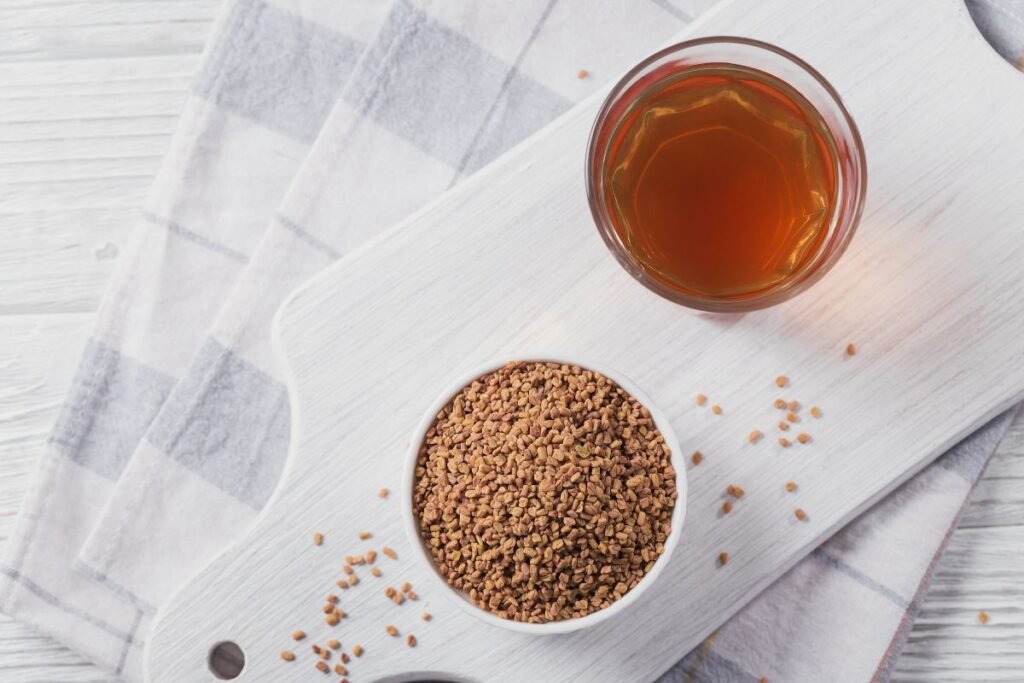
Side Effects of Fenugreek Tea
Despite the many benefits of fenugreek tea and its positive effects on health and the treatment of diseases, it can also have side effects:
- diarrhoea
- Stomach upset
- headaches
- dizziness
- body fluids (urine, sweat, breast milk) produce a maple smell
In addition, fenugreek tea is strictly not recommended for pregnant women. There is evidence to suggest that it may cause uterine contractions and premature birth.
People with hormone-sensitive cancers and those taking blood thinners and blood sugar medications should also drink fenugreek beverages with caution.
In general, you should always consult your doctor or pharmacist before using fenugreek for medicinal purposes.
Sources:
- https://www.starwest-botanicals.com/blog/5-benefits-of-fenugreek-in-tea/
- https://www.medicinenet.com/what_are_the_benefits_of_fenugreek/article.htm
- https://www.webmd.com/vitamins/ai/ingredientmono-733/fenugreek
- https://cookpad.com/us/search/fenugreek%20tea
Associative photos from © Canva.
